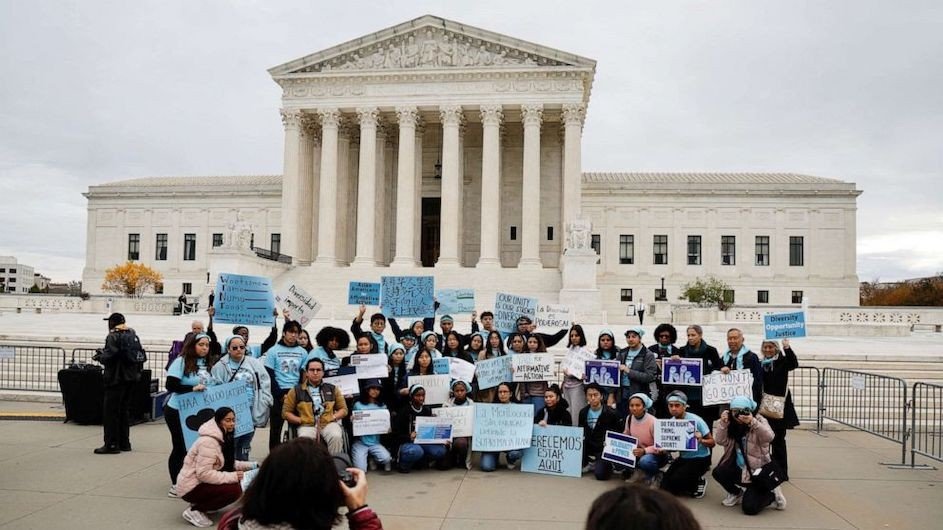UNC and Affirmative Action at the Supreme Court: Another Precedent Overturned?
Supporters of affirmative action in front of the Supreme Court building in Washington, D.C. Source for Image: Columbia News
On October 31st, the Supreme Court heard oral arguments regarding the case Students for Fair Admissions v. University of North Carolina, marking the beginning of what could be the end of affirmative action in higher education. This highly-publicized case stems from a lawsuit brought against UNC-Chapel Hill in 2014 by Students for Fair Admissions, a membership nonprofit group that advocates for ending the use of race as a factor for undergraduate admissions. SFFA also filed a lawsuit of a similar nature against Harvard University, arguing that both universities use admissions policies that are unfair towards white and Asian-American applicants. The basis for this argument stems from the function of affirmative action, part of which is to protect “qualified minorities,” a term that has been a main point of contention. Each affirmative action case is being heard independently, but it is predicted by Adam Liptak, a law expert for the New York Times, that the Supreme Court will come to the same conclusion for each, resulting in affirmative action being overturned as a constitutional precedent due to the bench’s conservative swing.
From the perspective of the plaintiff group, the current precedent of affirmative action uses race unfairly in terms of preference for college admissions. Edward Blum, the leader of SFFA, claims that UNC and Harvard’s methodology regarding the acceptance of undergraduate applications violates both Title VI of the Civil Rights Act of 1964 and the Equal Protection Clause of the Fourteenth Amendment to the Constitution. This argument stems from their belief that diversity is better achieved through “race-neutral alternatives,” which is considered a more conservative take on this issue. The Supreme Court now has a conservative majority, with former President Trump appointing three justices during his time in office. This has created significant doubt within the media and the general public that they will vote in support of affirmative action. However, it is important to note that in analyzing oral arguments, this has not entirely been the case so far. Justices Brett Kavanaugh and Amy Coney Barrett, who both voted in favor of overturning Roe v. Wade several months ago, indicated that they would aim to consistently uphold previous rulings. While this could suggest that an assumed conservative majority for the court ruling is not guaranteed, many experts still believe that the odds of affirmative action being overturned are still high.
UNC and Harvard, in contrast to SFFA, view affirmative action and its use of equity as essential in diversifying their student populations. This contested precedent these universities are using is based on the case Grutter v. Bollinger, which allows colleges to consider the race of highly-qualified applicants in admissions to promote the benefits of diverse learning environments. These universities seek to uphold affirmative action by arguing that they are adhering to established Supreme Court precedents and that their admissions policies foster educational diversity.
The overturning of Supreme Court precedents can have drastic implications for not just affirmative action, but other social issues as well. With the recent overturning of Roe v. Wade and now potentially Grutter v. Bollinger, debate is sparking over where exactly the line should be changing times. In her speech supporting existing affirmative action policies, Solicitor General Elizabeth Prelogar describes the idea of the Supreme Court overruling precedent as “destabilizing.” Only time will tell if this pattern becomes commonplace within the Supreme Court, or if public backlash will prove enough of a deterrent to protect these precedents.

